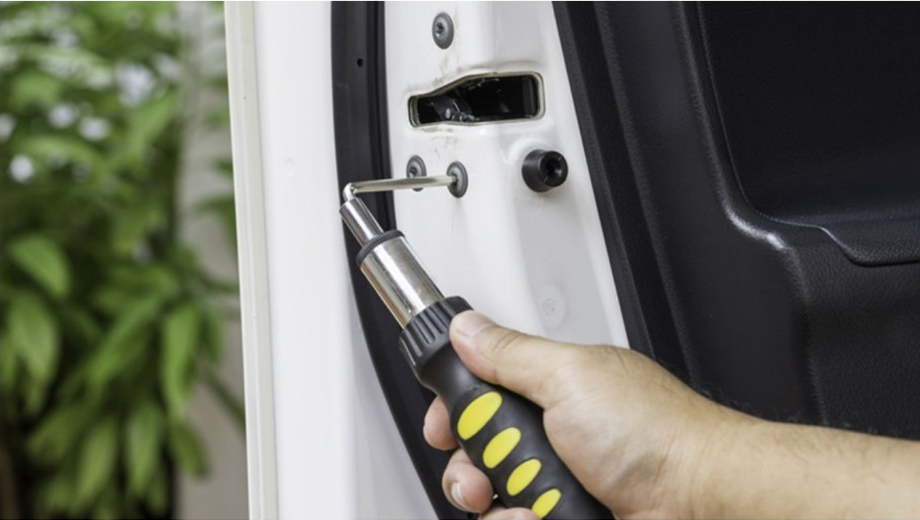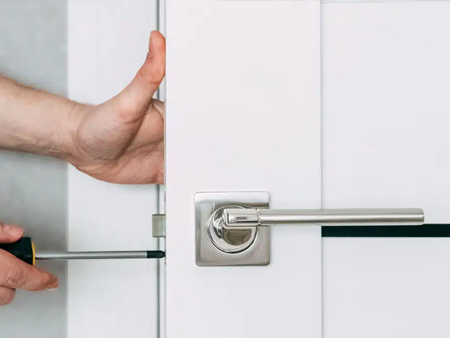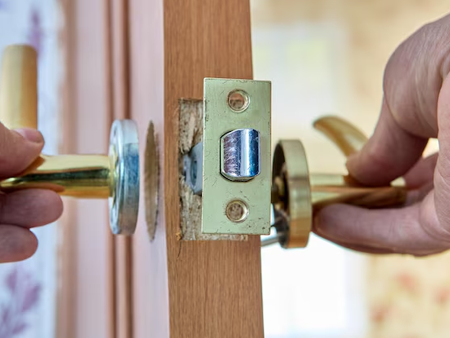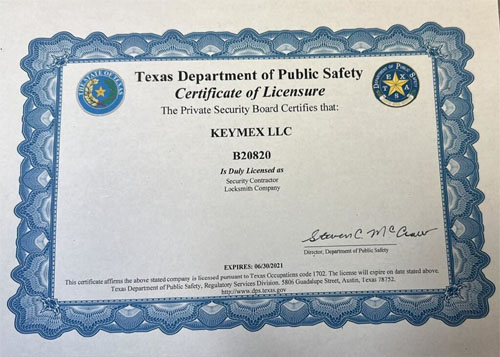DIY Lock Repair: Should You Try It?

Locks are the silent guardians of our homes, ensuring our safety and providing peace of mind. But like any mechanical device, locks are susceptible to wear and tear over time, eventually requiring maintenance or repair. When faced with a malfunctioning lock, the temptation to roll up our sleeves and attempt a DIY fix can be strong. After all, how hard can it be to tweak a few components and restore functionality? However, before you reach for your toolbox, it’s essential to weigh the risks and benefits of DIY lock repair. In this blog, we’ll delve into the factors to consider when deciding whether to tackle lock repair yourself or enlist the help of a professional locksmith.
 Understanding the Complexity of Lock Mechanisms: Locks may appear deceptively simple on the surface, but their internal mechanisms can be surprisingly intricate. Modern locks often incorporate complex components such as tumblers, pins, springs, and cylinders, all designed to provide security against unauthorized access. Attempting to disassemble and repair a lock without a thorough understanding of its inner workings can lead to further damage and render the lock inoperable.
Understanding the Complexity of Lock Mechanisms: Locks may appear deceptively simple on the surface, but their internal mechanisms can be surprisingly intricate. Modern locks often incorporate complex components such as tumblers, pins, springs, and cylinders, all designed to provide security against unauthorized access. Attempting to disassemble and repair a lock without a thorough understanding of its inner workings can lead to further damage and render the lock inoperable.- Assessing the Nature of the Problem: Before attempting any DIY lock repair, it’s crucial to accurately diagnose the nature of the problem. Is the lock sticking, jamming, or failing to turn smoothly? Are there visible signs of damage or wear, such as broken keys or worn-out components? Some lock issues may be relatively straightforward to address with basic troubleshooting techniques, while others may require specialized tools and expertise.
- Evaluating Your Skills and Experience: DIY projects can be rewarding and cost-effective, but they also require a certain level of skill and experience to execute successfully. If you have prior experience with mechanical repairs and a knack for troubleshooting, you may feel confident in your ability to tackle minor lock issues. However, if you’re unfamiliar with lock mechanisms or lack the necessary tools and expertise, attempting DIY lock repair could do more harm than good.
- Consideration of Safety and Security: Locks play a critical role in safeguarding our homes and belongings, so it’s essential to prioritize safety and security when considering DIY repairs. A botched repair job could compromise the integrity of the lock, leaving your home vulnerable to break-ins and intrusions. Additionally, attempting to repair a lock without proper precautions could result in personal injury or property damage.
 Cost-Benefit Analysis: DIY lock repair may seem like a cost-effective solution compared to hiring a professional locksmith, but it’s essential to weigh the potential costs and benefits carefully. While DIY repairs may save you money upfront, they could end up costing more in the long run if they result in further damage or necessitate professional intervention to correct. Consider the value of your time, the risk of mistakes, and the potential consequences of DIY repairs gone wrong.
Cost-Benefit Analysis: DIY lock repair may seem like a cost-effective solution compared to hiring a professional locksmith, but it’s essential to weigh the potential costs and benefits carefully. While DIY repairs may save you money upfront, they could end up costing more in the long run if they result in further damage or necessitate professional intervention to correct. Consider the value of your time, the risk of mistakes, and the potential consequences of DIY repairs gone wrong.- When to Seek Professional Help: In many cases, it’s best to err on the side of caution and seek the expertise of a professional locksmith for lock repairs. Professional locksmiths have the training, experience, and specialized tools necessary to diagnose and resolve a wide range of lock issues efficiently and effectively. They can also offer valuable advice on security upgrades and preventive maintenance to enhance the security of your home.
Conclusion:
DIY lock repair can be a tempting proposition for homeowners looking to save time and money, but it’s not without its risks and pitfalls. Before attempting any DIY lock repairs, carefully assess the complexity of the problem, your skills and experience, and the potential impact on safety and security. When in doubt, it’s always wise to enlist the services of a professional locksmith who can ensure that your locks are repaired correctly and your home remains secure. After all, when it comes to protecting what matters most, it’s better to be safe than sorry.

 Understanding the Complexity of Lock Mechanisms: Locks may appear deceptively simple on the surface, but their internal mechanisms can be surprisingly intricate. Modern locks often incorporate complex components such as tumblers, pins, springs, and cylinders, all designed to provide security against unauthorized access. Attempting to disassemble and repair a lock without a thorough understanding of its inner workings can lead to further damage and render the lock inoperable.
Understanding the Complexity of Lock Mechanisms: Locks may appear deceptively simple on the surface, but their internal mechanisms can be surprisingly intricate. Modern locks often incorporate complex components such as tumblers, pins, springs, and cylinders, all designed to provide security against unauthorized access. Attempting to disassemble and repair a lock without a thorough understanding of its inner workings can lead to further damage and render the lock inoperable. Cost-Benefit Analysis: DIY lock repair may seem like a cost-effective solution compared to hiring a professional locksmith, but it’s essential to weigh the potential costs and benefits carefully. While DIY repairs may save you money upfront, they could end up costing more in the long run if they result in further damage or necessitate professional intervention to correct. Consider the value of your time, the risk of mistakes, and the potential consequences of DIY repairs gone wrong.
Cost-Benefit Analysis: DIY lock repair may seem like a cost-effective solution compared to hiring a professional locksmith, but it’s essential to weigh the potential costs and benefits carefully. While DIY repairs may save you money upfront, they could end up costing more in the long run if they result in further damage or necessitate professional intervention to correct. Consider the value of your time, the risk of mistakes, and the potential consequences of DIY repairs gone wrong.